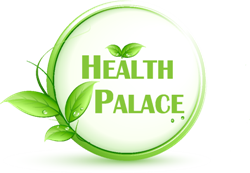Natural Supplements for Men's Health | How to Improve Men's Health and Wellness?
November Men's Health & Wellness
Hormonal imbalance and prostate-related disorders are common topics related to men's health. Our November newsletter contains information on topics like Hormonal Imbalance in men and its effects on the body, BPH, Non Infection related Prostatitis ( Prostate Gland Inflammation), and Prostate Cancer. You will find how and which natural medicines are suitable for each condition.
Prostate Cancer remains the most serious prostate condition. While It is still the most common cancer in men in western countries, many studies support the importance of epigenetic factors in triggering or stopping the responsible genes for the disease. Nutrition, Lifestyle, Hormonal Change, Stress, Chronic inflammation, Environmental pollution, and many others are considered epigenetic factors.
Hormonal imbalance in Men
Many of the changes in body composition, energy levels, libido, memory, and stress tolerance are affected by hormonal imbalance. Hormonal changes are influenced by several factors like lifestyle habits, nutrition, genetics, and oxidative stress associated with aging.
The effects of declining Testosterone
Reduced testosterone levels result in an increased amount of specific testosterone binding protein; therefore; ultimately levels of bioavailable "free" testosterone to be used by the muscles, bones, and heart will be lower. A lower amount of free testosterone is also affecting mood and cognitive health.
Men with declined testosterone may develop increased levels of estrogen and/or a reduced ratio of testosterone metabolites to estrogen metabolites. In men via the activity of an enzyme called aromatase, testosterone transforms into estradiol (Estrogen). Aging men sometimes have too much aromatase activity causing their testosterone to convert to excess estradiol. This results in depletion of vital testosterone while spiking estradiol to unsafe ranges. Plus, due to aging, the production of testosterone decreases as well.1,2
A healthy balance of testosterone and estrogen and their metabolites in men contributes to colon health, prostate health, healthy sexual function, healthy blood lipid metabolism, and overall cardiovascular health.
Natural Support that may keep testosterone levels in balance
Tribulus (Tribulus Terrestris)Ashwagandha (Withania somnifera), and Cowage (Mucuna pruriens)Seed Extract; support the proper testosterone-producing function of the gonad, and maintain healthy gonadotrophic hormone production. In a proper ratio and formula, these herbal extracts provide support for healthy male sexual function, libido, and vitality. SGS (Sulforaphane) from broccoli seed, Green Tea Extract (EGCG), Lycopene, Zinc, Selenium, and Turmeric; contain phytonutrients known to inhibit aromatase- an enzyme that converts androgen to estrogen. These neutraceuticals also inhibit the conversion of testosterone to DHT (dihydrotestosterone- whose increased amount is associated with an enlarged prostate and male hair loss). Furthermore, their powerful antioxidant protection supports the health of hormone-sensitive tissues.5,6
Prostate health
Is a major concern for all men, especially as they get older. Many men suffer from prostate conditions that negatively affect their quality of life. These prostate conditions include an enlarged prostate (BPH), prostatitis, and prostate cancer.
Benign prostatic hyperplasia (BPH)
Is a non-cancerous swelling of the prostate gland, leading to discomfort, nocturia or midnight bathroom urgency, frequent and sudden urges to urinate, and incomplete urinating. BHP affects men in late middle age.
Natural support may provide relief and also may reduce the risk of future prostate problems
Lycopene, zinc, SGS from broccoli extract, selenium, and green tea extract (EgCG) are known to protect against unhealthy cellular growth and differentiation. 5,6. Saw palmetto,pygeum, beta-sitosterol, stinging nettle, and Vitamin B6 offer support for healthy urinary function, in part by maintaining healthy hormone metabolism and enzyme activities.
Other Prostate Health Concerns
Other than BPH prostate-related concerns include chronic prostatitis (CP) and prostatodynia. Both are non-bacterial inflammation of the prostate gland being common among men of a wide age range. Urologists suggest the symptoms could be due to a problem with the nerves supplying the prostate gland and chronically tightened muscles inside the pelvic floor.
Natural Support that may reduce prostate inflammation and its related symptoms
Studies have found that defined pollen extract can be helpful in chronic prostatitis and prostatodynia, and there is also hope that it could potentially protect against more serious prostate problems.3,4. Defined pollen extract is not bee pollen. Raw bee pollen is hard to assimilate by a human because it is covered by a microscopic husk. Defined pollen extract is made up of isolated key fractions of primarily rye pollen in a specific ratio processed under low temperatures. Studies reported that men using defined pollen extract experience significant reductions in the volume of the prostate in the cases of BHP and Prostatitis as measured by ultrasound. 3,4
Prostate cancer
Is the most common cancer as well as the second leading cause of cancer-related deaths in men in Western countries. The good news is that many natural products can help to reduce the symptoms of prostate problems, as well as reduce the risk of developing them in the first place. As current and ongoing research continues to explore improvements in prostate health and various methods of detecting disease, it is impotent to be proactive in following simple but effective strategies to support prostate health and prevent the disease.
Plant-based food to lower prostate cancer risk
Men with prostate cancer who consumed green tea before undergoing prostate removal had less inflammation, U.S. researchers say.1,2. Men with the highest total intake of flavonoids had a 25 percent lower risk for aggressive prostate cancer compared with those men with the lowest flavonoid intake. U.S. researchers say.1,2 Prevention begins with a healthy diet of many varied foods. Antioxidant and anti-inflammatory properties found in coffee, green tea, flax seed, fish, broccoli, leafy greens, and pomegranate are extra good. Limiting red meat, eggs, cold cuts, milk, and sugary foods also help.
Keep up with annual physicals and don't skip the PSA test and find out family history. Some supplements, such as selenium, Lycopene, SGS, and ECGC, ... might reduce prostate cancer risk. Before starting any supplement or medication regimen, discuss it with your physician and health care practitioner to find the right product and dosage that is right for you.
Articles and products featured by Health Palace are collected from a variety of sources and are provided as a service by Health Palace. These newsletters, while of potential interest to readers, do not necessarily represent the opinions nor constitute the advice of Health Palace. Presented materials are only for information purposes and do not intend to treat, cure, or prevent any disease.
References:
1-Researches from School of Medicine at the University of California, presented at the annual American Association for Cancer Research International Conference on Frontiers in Cancer Prevention Research, provides new insights into the mechanisms by which green tea consumption may reduce inflammation, PSA, and the risk of prostate cancer.
2-Researches from Arnold School of Public Health at the University of South Carolina, presented at the annual American Association for Cancer Research International Conference on Frontiers in Cancer Prevention Research, suggests Incorporating more flavonoidsform plant-based foods and beverages, such as fruits, vegetables, herbs and tea, into the diet may offer some protection against aggressive prostate cancer.
3-Andriole GL, McCullum-Hill C, Sandhu GS, Crawford ED, Barry MJ, Cantor A; CAMUS Study Group. The effect of increasing doses of saw palmetto fruit extract on serum prostate specific antigen: analysis of the CAMUS randomized trial.
4-J Urol. 2013 Feb;189(2):486-92.Becker H, Ebeling L. Phytotherapy of BPH with cernilton N – results of a controlled prospective study. Urologe (B) 1991;31: 113-6.
5-Ansari MS et al. Lycopene: a novel drug therapy in hormone refractory metastatic prostate cancer. Urologic Onclogy: Seminars and Original Investigations. 2004; 22: 145-420.
6-Brooks, JD., Paton, VG., Vidanes, G. Potent induction of phase 2 enzymes in human prostate cells by sulfurophane. Cancer epidemiology, biomarkers & prevention. 2001, vol 10;949-954.
Recent Posts
-
Maintain A Healthy Heart Rhythm With Integrative Medicine
Maintain A Healthy Heart Rhythm With Integrative Medicine;Usually, abnormal heart rate or arrhythmi …4th Feb 2021 -
How To Protect Against COVID-19
Coronaviruses are a large group of viruses that cause many common human and animal infections. In hu …30th Jun 2020 -
How to Prevent Gallstones from Forming? | Natural Supplements for Gallstones
How To Prevent Gallstone Formation?Gallstones are hard deposits made of cholesterol or bilirubin f …4th Mar 2020




